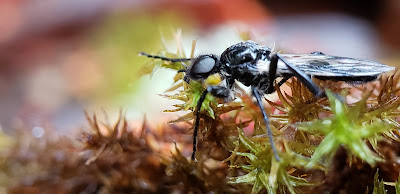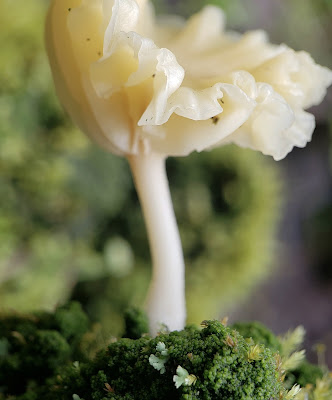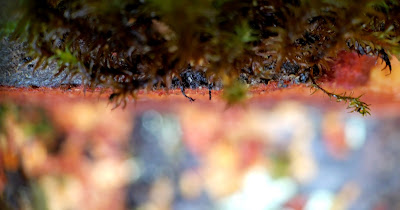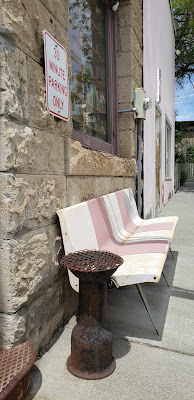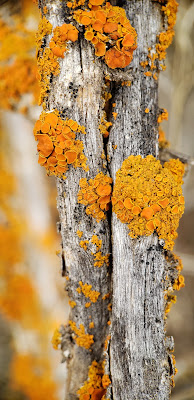 |
Orange Peel Fungus, Aleuria aurantia |
Great black wasp
As I try to focus the rectangular field of my phone screen, I struggle with a plethora of unexpected minutia. Bug eyes of a great black wasp, the subtle colors of a tiny mushroom, or the roughness of a snail’s skin. I find myself trying to see faster.
Slice of a downed river alder trunk with a background of wood chips and lichen.
Both newer iPhones and androids have built-in macro lenses, but none equal the ability of a 100 mm attached lenses. When I stopped to take a photo of a buttercup with drops of rain, I looked through the macro lenses and discovered a caterpillar creeping along the edge of a petal.
Startled by the bounty found in a square inch (or an equivalent square 6.452 centimeters), composition seems almost secondary. The hardest task is holding still and catching objects motionless between light wind currents. Only later, does the background or the composition seem important. This is where I find myself trying to “see” faster.
Looking at the mushroom again. This is a comparison of its size with my fingernail.
Once I switched the focus of my phone lens, I took a number of shots before I became aware of the soft curve of the blurred mound of moss to the right of the stem and centered it in my lens for a better composition.
Although the macro lenses feels heavy in my pocket, I don’t head out anywhere without it.
Even in built-environments, I find macro worlds.
The screw on a cigarette butt can with the remnants of a tiny leaf folded across the cut are beautiful.

